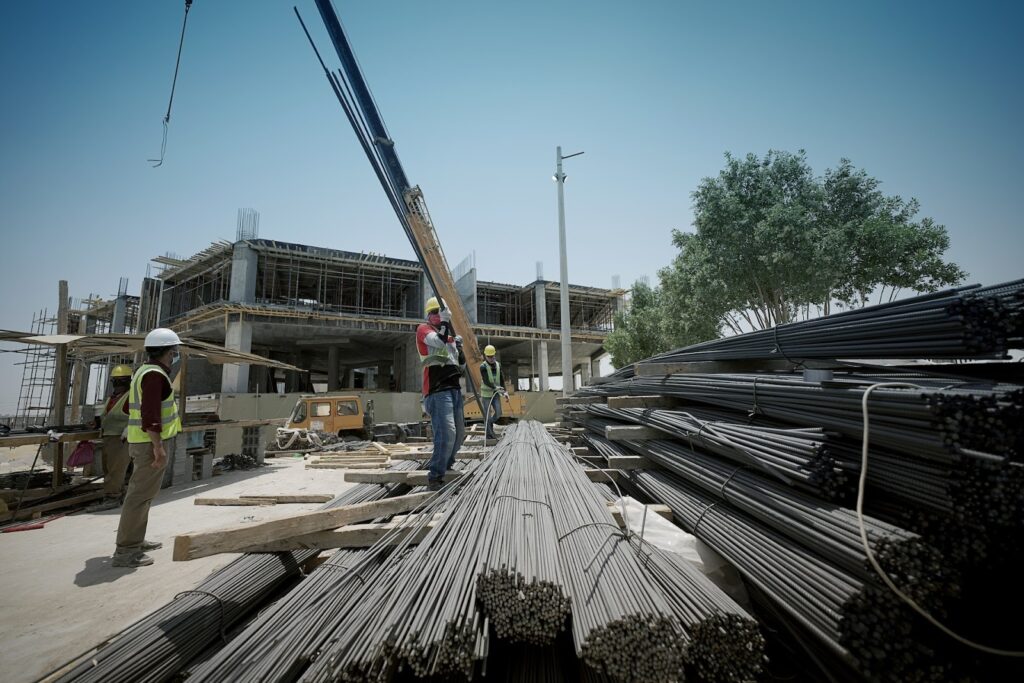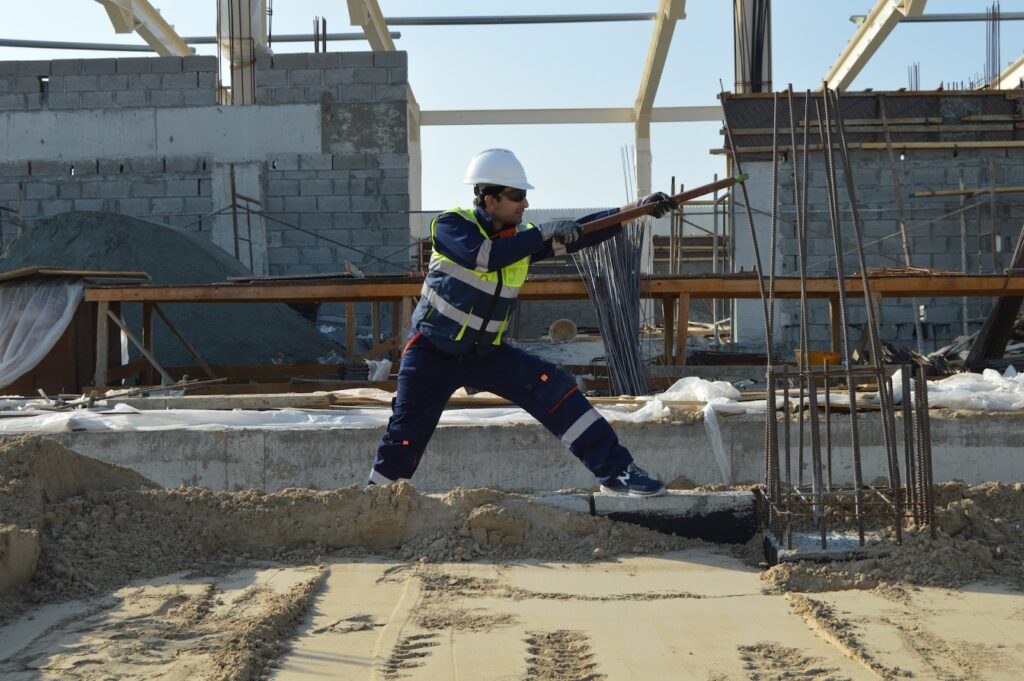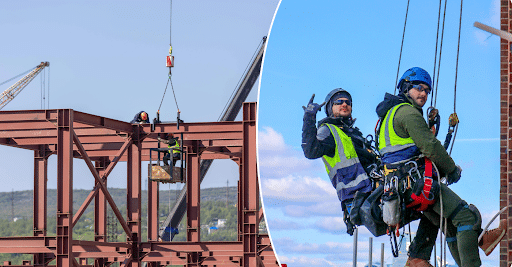Any project or company is of no worth without its skilled agents. A team is required at any cost to execute the planned framework. The construction industry is not an exception to this.
The construction industry mainly depends on its labor force which must be skilled in its work and deliver the best in time. Whether it’s about building foundations for houses or applying countertops, the labor involvement doesn’t only promise success but also affects the cost of a project.
The construction industry is considered as an economic activity as it covers all the economic sectors. Thus, the effect of the construction labor and construction industry on the economy of a country is prominent.
Let’s discuss the construction labor effects in relation to the United States economy, why these workers are considered of so much worth in the construction business, what issues this industry is specifically facing and what are the future prospects of this industry in the US.
Table of Contents
Construction Labor and the U.S. Economy
The construction business makes a big difference in the US economy, and its success depends on the people who work in it. The work of construction laborers is very important for economic growth and job creation.
The Bureau of Labour Statistics says that more than 7.6 million construction workers were employed in 2020, which is about 4% of all US workers. This is proof of how much construction work affects the business.
According to the data provided by the Statista Research Department, in July 2023, the construction sector employed approximately eight million people in the United States, the largest number since the outbreak of the COVID-19 epidemic. The need for construction workers is directly proportional to the level of investment in the industry. For instance, the value of newly built U.S. infrastructure likewise fell in the years after the financial crisis of 2008.

Construction work not only creates jobs but also helps other businesses grow, like manufacturing and transportation. There is a ripple effect that creates more jobs and boosts economic activity when people want to build new things and improve infrastructure. In fact, about 28,500 jobs are made for every $1 billion that is spent on building.
Working in construction also brings in a lot of tax money, which helps the business. In addition, the construction sector creates more jobs in other fields for every direct job, known as a multiplier effect. It’s clear that construction labor is essential to the US economy.
Current Issues in United States’ Construction Labour
The construction business is very important to the US economy. It employs over 7.5 million people and makes up 4% of the country’s GDP. But there are some problems with the way construction work is done in the US right now. The US construction industry is changing because older workers are leaving and not enough young people are entering the field. This has led to fewer skilled workers, which has made building sites less productive and could pose safety risks.
The construction sector also has a problem with a lack of workers because of the need for new infrastructure projects and the retirement of experienced workers. This has caused significant delays and increased costs, putting strain on both the industry and the economy.
To deal with these problems, it’s important to put money into training and upskilling programs to get and keep a skilled construction labor force. Also partnering with trade schools or offering tax incentives to companies that invest in employee training will help to improve the situation. These changes will be good for the industry and help the US economy grow and progress.

Why Skilled Workers are Important in the Construction Business
Skilled labor is an essential component of the construction industry, requiring specialized skill sets to ensure the successful completion of projects. Each skilled worker, whether a carpenter, plumber, or electrician, plays a crucial role in ensuring that the finalized product is reliable and safe. Hiring and training skilled workers can improve the overall efficiency of a project, reducing costs and time.
The reputation and success of a construction business depend on the quality of its workforce and the satisfaction of its clients. Therefore, investing in the education and maintenance of qualified workers is crucial for the industry’s viability and economic growth. Moreover, keeping up with new technologies and methods is also important for building workers looking to stay competitive in the field. The construction industry is vital to the country’s economic growth and will continue to be so if it can attract and retain a competent workforce.
Why Construction Workers Are Important for Building Infrastructure
Improving a country’s infrastructure is essential to its economic and social development. The construction industry is vital to the development and upkeep of America’s physical infrastructure, including its highways, bridges, airports, and buildings. Contributing to the country’s economic and social development, their labor is valuable beyond mere physical constructions.
Infrastructure projects rely on construction labor, which creates jobs and boosts the economy. The general quality of life for citizens is enhanced, investments are attracted, and different sectors are supported by these projects. The expansion of the United States’ transportation systems, communication networks, and other essential infrastructure would not have been possible without the skilled labor provided by the construction sector.
The worth of construction labor is not limited to the early stages of a project. To keep the current infrastructure running well and safely for as long as possible, these professionals are needed. A critical component of infrastructure development in the US is the quality of the construction labor, which has a direct impact on the stability and reliability of infrastructure.

Technology’s Importance in the Construction Sector
The construction industry has undergone significant changes with the increasing use of technology and automation. Technology has introduced high-tech machines, software, and digital tools that have transformed the planning, development, and execution of building projects. As a result, the roles of construction workers have evolved, and they now require both traditional and modern skills to remain relevant and competitive in the job market.
Technology has also enhanced the efficiency and productivity of construction projects, enabling workers to accomplish tasks faster and more accurately. However, it is essential to consider the potential impact of technology on construction jobs. Automation may replace some tasks, leading to a reduced need for labor.
Therefore, construction laborers need to continually acquire new skills and adapt to new technologies as the industry becomes more technologically advanced. This approach will foster growth and success in the building sector.
What the Future Holds for American Construction Labour
The future of construction labor in the US is changing in parallel with the construction industry’s rapid technology improvements and other changes. There will be new chances for development and progress, but there will also be new difficulties. The necessity to reskill and upskill the present workforce is brought to light by the fact that technological advancements and automation in construction will necessitate new sets of skills and knowledge.
To ensure long-term economic growth, there will be a stronger focus on investing in construction labor to meet the rising need for infrastructure development. In order to shape the future of construction labor in the US, it will be essential to address the issues that workers and the industry confront, including safety concerns and labor shortages. If the construction industry and its workforce are sustained and adequately funded, they will continue to be a major engine for economic growth in the United States.
Bottom Line
In sum, the construction industry is a key engine of American economic expansion and progress. A diversified and competent workforce is essential to the construction industry, which builds and maintains infrastructure and has a major impact on the economy. However, in order to ensure the long-term viability of the business, it is necessary to solve the numerous obstacles that construction workers encounter.
The construction industry is rapidly becoming more automated, which means that workers will need to acquire new skills to keep up. The future of the construction sector and the US economy as a whole depends on investments in construction labor. Maintaining a robust and long-term construction sector in the US requires prioritizing and supporting construction labor’ demands.





